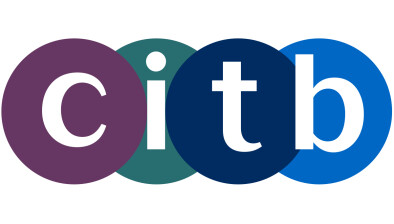CITB cuts levy bills to support sector’s recovery
The Construction Industry Training Board (CITB) has today announced that it will be suspending levy payments from industry until September to help employers recover from the impact of coronavirus.

Sarah Beale
The training body said its Skills Stability Plan 2020-21 protects apprenticeships and provides direct funding to employers to adopt new ways of working needed in the wake of COVID-19.
Employers will continue to have a payment holiday on the levy until September and then up to a full year to pay the 2020/21 levy.
In addition, CITB will propose a 50% discount on the 2021/22 levy rate. This means employers will pay 18 months’ levy out of 24, making an overall saving of 25% across two years, providing help when it is most needed.
An employer with an average annual levy bill of £1,200 would normally pay £2,400 over 2020-22. Instead, they will pay nothing from April to August this year and then take advantage of spreading the costs – £100 per month up to February 2022, paying £1,800 overall.
These changes will see CITB’s forecast levy income drop by £166 million across two financial years. Despite this large drop in income, the Skills Stability Plan will protect apprenticeships, direct funding to employers and the grants scheme. CITB is also cutting costs and using its reserves to support employers’ skills needs, it added.
CITB said it will work with other industry partners to support workers who have lost their jobs or seen their apprenticeship disrupted, matching them with a new employer, including through exploring a talent retention scheme. This will build on the support already provided to help apprentices complete their programmes through up-front grant payments to current year 2 and 3 apprentices, training materials being made available online and support from Apprenticeship Officers to allow learning to continue remotely.
The plan has also prioritised direct funding for employers through the Skills and Training Funds, with £8m earmarked for small and micro businesses, £3.5m for medium-sized businesses, with a £3m Leadership and Management Fund for large firms. This will help employers train to adapt to the new working environment and update the skills of their workforce.
CITB chief executive Sarah Beale said: “This represents a radical plan of action that balances the need for a reduction in the levy at this time, alongside vital investment in the skills needed by employers now and in the future.
“It is the result of hundreds of conversations with employers across the length and breadth of Britain and I’m confident it meets the sector’s immediate needs. We are committed to making the Levy work hard to protect apprenticeships and support hard-pressed employers as they equip themselves for the challenges and opportunities ahead.”
CITB will now seek the views of industry employers and federations about the development of a new strategic plan, covering 2021-23, with the plan expected to be published in September.
Sarah Beale added: “We have spoken to employers and federations and most have suggested that they want us to focus full-time on helping the industry meet the challenges posed by COVID. We have confirmed with the Department for Education that we will not run the usual Consensus process and instead we will speak to employers and industry groups to seek their views on our plans for next year.
“We will continue to be responsive and collaborative, working closely with the sector and government to return the industry to growth. We will listen to industry and respond to its priorities and give every employer the confidence that we wish to understand and learn from their concerns and ambitions.”
Maureen Douglas, director at Forster Group, the Scottish Roofing & Solar Contractor and CITB trustee, said: “A reduction in Levy income, combined with the need to maintain levels of industry training, has required CITB to make some tough choices. The Skills Stability Plan rightly sees supporting apprentices as the top priority as we can’t afford to lose those already in training, nor can we shut the door on those wanting to join. The plan will help industry, in particular SMEs, to continue to train where possible under difficult circumstances. I’m confident the plan will give industry the support it needs.”
Jamie Hepburn MSP, minister for business, fair work and skills, said: “Over the past decade Scottish construction firms have consistently recruited more Modern Apprentices than those in other sectors, highlighting a clear desire among employers to give young people the skills and experience needed to work in the industry.
“I am pleased that CITB is continuing to prioritise support for apprentices, ensuring industry can support those in training while attracting new talent. These substantial cuts in CITB Levy bills will also be a welcome boost for businesses during this difficult time.
“Skilled employees will be vital for Scotland’s economic recovery, and we will continue to work closely with CITB and industry to make sure people have what they need to succeed in the workplace.”
Mark Reynolds, Mace Group chief executive and skills workstream lead at the Construction Leadership Council (CLC), said: “Our industry has come together to develop an effective plan to come back from the effects of COVID-19, as detailed in the CLC’s Roadmap to Recovery document.
“CITB’s Skills Stability Plan builds on this work and clearly outlines how they will play their part in delivering the skills we need. We very much support efforts made by the CITB to substantially reduce the levy. It is right that consensus is delayed so we can work together to make sure that our recovery, still in its early stages, is as strong as possible.”
Brian Berry, chief executive of the Federation of Master Builders, added: “The cut in the CITB levy which equates to 25% over a two year period is welcome relief for those building companies struggling in the current climate when many are experiencing lower levels of enquiries and restrictions on their ability to work. The delay in the consensus process is sensible given the added pressures that the construction industry is facing.
“It’s important now that the CITB focuses its energy on getting money out of the door to support builders to train, and that they improve communication with SMEs who find it harder than is acceptable to access CITB services. The construction industry still faces a skills crisis, and any future skills plan mustn’t overlook the core role that SMEs play in developing talent, especially as they train over 70% of the industry apprentices.”













